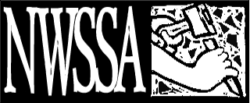
Home » Journal Articles » Thoughts & Opinions » Caveat Venditor
Early 2011 NWSSA email correspondence on the Listserve detailed scams that sculptors with websites might be prey to:
They are all versions of the “I Must Have Your Art Right Now,” scam.
This came to us via a friend of George Pratt.
Let’s say someone purporting to live abroad, expresses interest in a piece on your website.
I like it. How much? Shipping charges? Soon a check arrives for something in excess of the shipping estimate plus the value of the sculpture, often, considerably more. He will ask that you make all arrangements to refund any overage. It is all worded in a way that makes it sound like this is a casual amount of money for him and he trusts you entirely to work out the details. Your bank will deposit the money in your account after the normal waiting period of three days. Then you package up the sculpture, send it off and send him a check for the excess amount. Here’s the scam on this one:
Even though the bank has deposited the funds into your account after three days, this does not mean that the funds have been cleared. The bank reserves the right to recover that money from your account if the funds do not clear and this can take anywhere from 30 to 45 days!
By that time the buyer will have your refund of his overage by money order or certified check and the sculpture and you don’t hear from him again. Because the funds don’t clear, the bank takes the $ out of your account.
From Tone Orvik:
“This happened to me last year. My gut feeling said it was a scam, but I got curious to see how he would try to pull it off. A Mr. Hill Jones from the Netherlands loved one of the pieces on my website, wanted to buy it, insisted that he use his own shipper, and needed the sculpture shipped immediately after I got his check. He got pissy and wrote threatening emails when I told him that I wouldn’t ship the sculpture until his very official looking international check had cleared, which of course it didn’t. In the end I realized that there wasn’t any real interest in getting my sculpture for free, it was all about the $200 that his associate shipper would get from me. It cost me $10 in bank fees for an invalid check, but I thought the learning was good. The signs to watch out for: scant knowledge of sculpture, no real interest in the piece, no knowledge of or interest in the problems of shipping sculpture, written English that badly matches the wealth he gives the impression of having, and, being in a hurry.”
Brian Berman suggests this web site for more information.
http://www.kathleenmcmahon.com/info/scammer-names.html
Michael Binkley gives us ‘clues to look for.’
“How is the English? Is it a generic .gmail, .hotmail, .msn.com, etc. email suffix? Does the writer ask to buy the most expensive, or near most expensive piece on your site?
Nigeria is a hotbed for Internet pirates, and their English skills are not great (though getting better unfortunately), so when you combine a gentleman who claims to be from London, England but he can’t write a proper sentence…well, there’s a clue.
I’ve taken to first establishing an email rapport. If the prospective buyer is truly interested, then I move on to a telephone conversation. Even if it is an international long distance phone call, it’s worth it. I have received some very handsome commissions from my website presence over the years, so sorting out the chaff is well worth it.”
Someone tried to scam Kirk McLean out of his flatbed truck. (Possibly a work of art, although we haven’t seen it.)
“The “buyer” asked me to click onto a link for auto insurance quotes “since their internet connection was slooow.” I’ve done a lot of dumb things in my life but so far clicking on a link in an email from someone I don’t know is not one of them. But hey, maybe there really IS somebody named Femina Sucre who is so wildly enthusiastic about a 25 year-old rusty truck they don’t ask for the VIN number, or about the body condition or anything else.”
Lee Gass had an offer from a ‘real person’, to buy his art. Lee Googled him to find that he was actually an author and educator who is currently head of a special school in Kuwait. “That reinforced my suspicion, since the writing style and quality of the request certainly didn’t fit someone who had published a biography of J.S. Bach with Cambridge University Press and runs a school.
The angle is that these scams might be fraudulent not only in scamming us, but by impersonating real people with attractive qualifications.”
Bill Weissinger weighs in with another type of scam:
“I got an e-mail recently from a good friend. He was distraught. He wrote me from London, on the sidewalk, in the rain. His wallet had been stolen. His passport was stolen as well. He couldn’t pay his hotel bill. The hotel had forced him and his wife out of their room and onto the street, where he stood with tears running down his cheeks, cold and hungry. “Help me, Bill,” he e-mailed me, “you are my only hope.” He wanted me to wire him money.
But the wording didn’t seem to be that of my friend. So I called him at his home in Hawaii, where he was well but disgruntled, having had his e-mail account taken over, and the password changed so he couldn’t get back into it.”
In other words, sculptors: Caveat venditor …… “let the seller beware.”








We need some kind of descriptive text here.